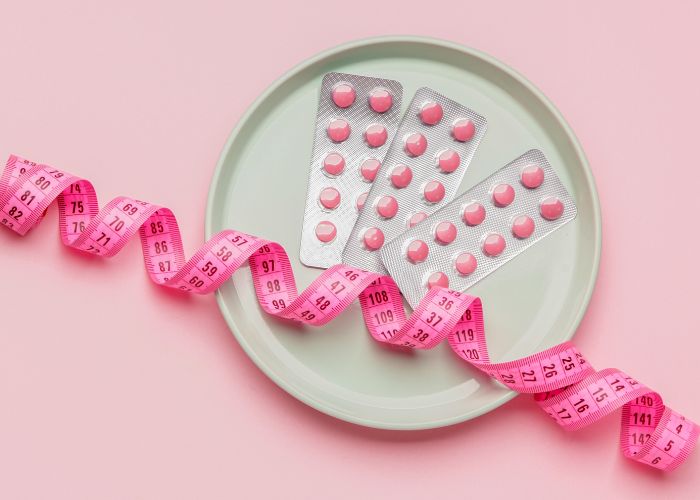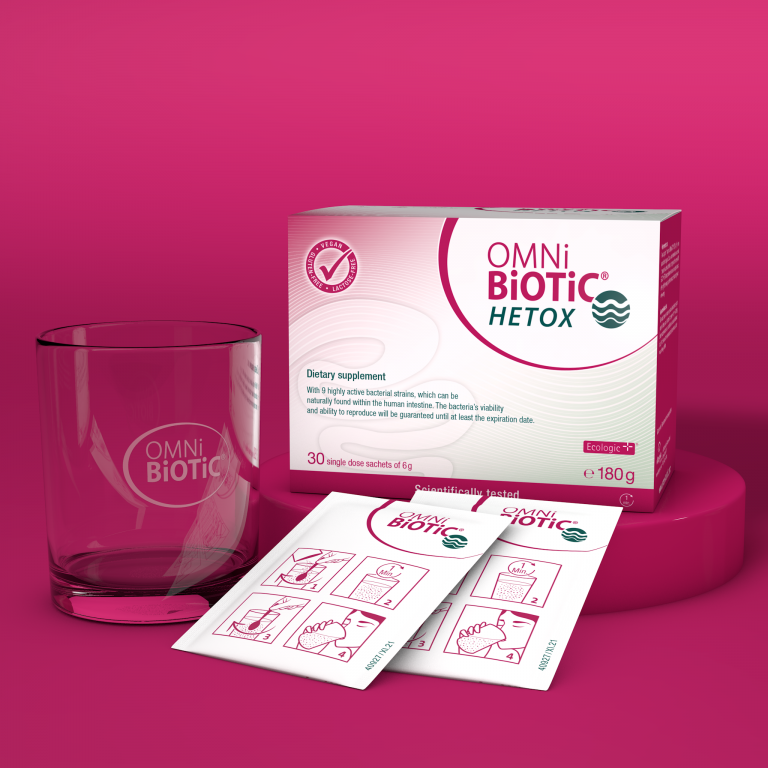Antibiotics are among the most important medical discoveries of the 20th century because they are essential for the treatment of serious and life-threatening bacterial infectious diseases. However, it is not uncommon for unwanted side effects to occur when taking antibiotics. The reason for this is that antibiotics not only destroy dangerous pathogens, but often also the beneficial and health-promoting intestinal bacteria. This reduces the diversity of the intestinal flora and potentially harmful germs can multiply unhindered. The imbalance of the intestinal flora can cause damage to the intestinal mucosa, among other things. All this can contribute to antibiotic-associated complaints such as diarrhoea. Taking a probiotic for antibiotics is recommended anytime you are prescribed antibiotics!
Antibiotic-associated diarrhoea – A common side effect

Diarrhoea occurs in up to 49% of patients taking antibiotics (antibiotic-associated diarrhoea, or AAD). In up to 25% of those, it develops into a severe form, Clostridium difficile-associated diarrhoea (CDAD). Clostridium difficile is one of the most common hospital germs and, if it multiplies rapidly, can lead to massive damage to the intestinal mucosa and high-grade inflammation through the production of two different toxins (toxin A and toxin B). The consequences include severe and sometimes life-threatening diarrhoea. In addition to antibiotics, chemotherapy, which is used in the treatment of cancer, can also cause diarrhoea. This prevents optimal treatment of the affected patients and in some cases even the continuation of the therapy.
The timely administration of specially formulated probiotics in addition to the drug can protect the intestinal mucosa during antibiotic and chemotherapies by positively modulating the intestinal flora. A probiotic consisting of ten selected strains of bacteria was developed for this approach. It is able to inhibit the growth of harmful germs and the release of toxins by Clostridium difficile within 24 to 48 hours. This probiotic can therefore efficiently prevent antibiotic-induced diarrhoea and CDAD.
Probiotic: proven successful use in AAD
As part of a study at the Leoben Regional Hospital, the positive effects of this specially developed multispecies probiotic on stool consistency and frequency during a course of antibiotics in the course of surgical interventions and chemotherapy were investigated. 54 surgical patients at the Leoben regional hospital, including nine cancer patients, were given 5 grams of this probiotic twice a day in addition to the prescribed antibiotic. The administration of the probiotic bacteria significantly reduced the incidence of antibiotic-induced diarrhoea to 5.5 % (general incidence with comparable medication: 25 %). In addition, stool consistency improved in more than 50% of patients with existing diarrhoea to a score below 6 on the Bristol Stool Shape Scale (BSS), which corresponds to normal stool (6 = diarrhoea). Particularly noteworthy is the positive effect of the said probiotic in chemotherapy patients: Thanks to the administration of the probiotic, there was not a single case of antibiotic- or chemotherapy-induced diarrhoea. The extremely good tolerability of the product is also worth mentioning, as no undesirable effects occurred.
Especially for cancer patients, the use of probiotics can contribute to a more optimal course of therapy and, moreover, to a better quality of life.
Multispecies probiotic for antibiotics
Antibiotics can, as mentioned at the beginning, negatively influence the composition of the intestinal flora, favouring the growth of harmful germs. Especially if this involves Clostridium difficile, this can lead to considerable complications and sometimes trigger life-threatening diarrhoea. The present study clearly shows that the timely intake of the probiotic in addition to antibiotic therapy significantly reduces the occurrence of antibiotic-induced diarrhoea in surgical patients. Especially in cancer patients, the use of a probiotic can help to optimise the course of therapy and increase the quality of life. Studies have already proven that an intact intestinal flora is of great importance for the successful implementation of chemotherapies and that probiotics can limit the damage to the intestinal mucosa caused by chemotherapeutic agents. In this regard, the above-mentioned study provides extremely impressive results that can help establish the use of medically relevant probiotics as a standard adjunctive therapy for both antibiotic treatments and chemo- and radiotherapies.
Author Profile
Prim. Univ.-Prof. Dr. Hans Rabl is a specialist in general surgery and vascular surgery, vein specialist and head of the Department of Surgery at Regional Hospital Hochsteiermark (Leoben).






























